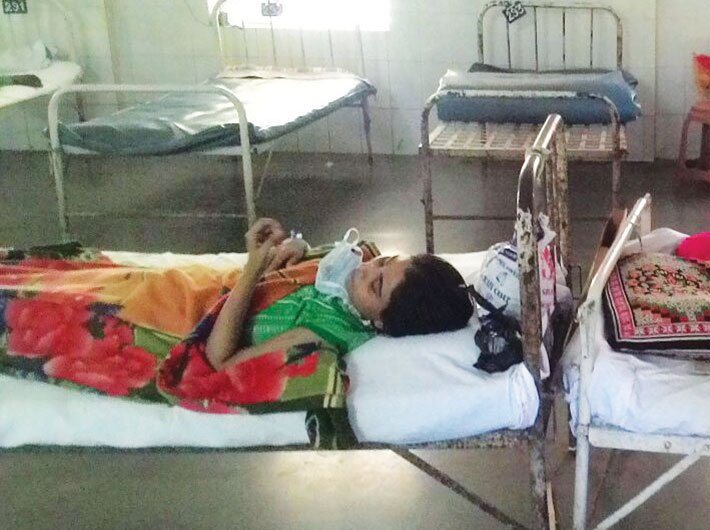The number of TB patients in India may be up to two to three times higher than current estimates, shows a new study, calling for new policy initiatives
India currently has the highest number of tuberculosis (TB) patients in the world. But hold your breath! A new study has suggested that the number of TB cases in India is a gross underestimate. In fact, it may be up to two to three times higher than current estimates. The study was jointly done by researchers from the Imperial College London, ministry of health and family welfare, India, and the World Health Organisation (WHO). It was published in the journal, The Lancet Infectious Diseases, in August.
The team had analysed drug sales data to show that the number of cases is underreported as most patients opt for private healthcare providers. And the latter habitually neglect to report cases to the public healthcare officials.
TB is a bacterial infection spread through inhaling tiny droplets from cough or sneeze of an infected person. In 2014, 9.6 million people fell ill with TB and 1.5 million died of the disease around the world.
Earlier estimates have suggested that India’s total TB burden was 2.2 million. However, the study suggests that over two million cases were being treated in the private sector, while an additional 1.4 million were being managed by the public system in 2014.
Dr Sunil Khaparde, one of the authors and also manager of the Revised National TB Control Programme (RNTCP) of the ministry of health and family welfare, says that the mandatory notification policy was introduced in 2012. While the number of cases notified by the private sector has increased, the study shows that there is gross underreporting.
The target of RNTCP is to eradicate TB by 2035. But at this rate, says Dr Henk Bekedam, WHO representative to India, this seems impossible. “The study reaffirms the need for innovative ideas to engage the private sector more comprehensively and for all stakeholders to unite if we are to end TB by 2035,” said Dr Bekedam during the release of the report.
Dr Nimalan Arinaminpathy, lead author of the research from the School of Public Health at Imperial College London, feels that it is important to know the current numbers in fighting the disease.
Dr Arinaminpathy feels that the government has realised the importance of the private sector and sees its engagement to fight TB in the long run.
“In doing so, however, it is important to know whether this journey will be a hundred kilometres or a thousand kilometres. That’s the value of the present study,” he told Governance Now.
Six months ago the RNTCP rolled out a new drug described as a ‘miracle drug’ to fight drug-resistant TB. The government has got about 2,500 doses from the United States Agency for International Development (USAID) and was to give it to patients through six government hospitals. However, the ministry has admitted that hardly a handful of patients have come forward to take this drug.
According to Dr Jacob John, retired virologist of Christian Medical College, Vellore, the main problem is that Bacillus Calmette-Guerin (BCG) vaccine, which was regarded as the main tool to prevent TB in children, was found ineffective. So we have no prevention mechanism and we now therefore have to detect all cases and cure all cases.
Says Dr John: “We are one-sixth of the world population, carrying one-third of the global TB burden. The irony is that RNTCP [read GoI] has no policy to control TB; only to give free treatment to those who present themselves for the treatment.
Treatment and control are two different things: treatment is medical care after developing disease and control is public health, preventing disease. The government has to get its act straight through a paradigm shift in treatment and control.”
He feels the goal for TB detection should be 100 percent. So, in addition to the present method of passive detection through cough clinics, some form of active search must be designed locally for improved case detection. A relatively simple approach is to capture in the TB control system all patients diagnosed with pulmonary TB, in both public and private healthcare sectors, he says.
Menon is a freelance journalist.
(The article appears in the November 1-15, 2016 issue)



